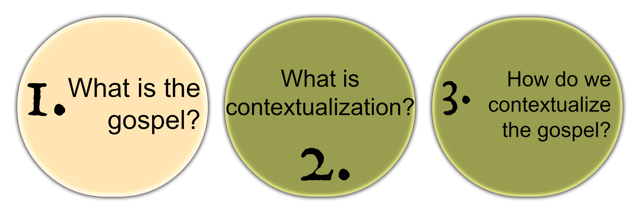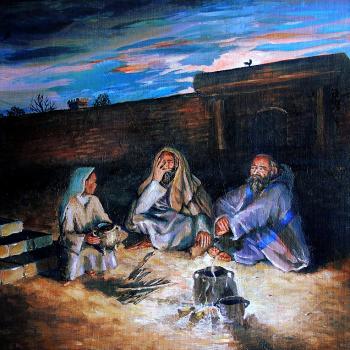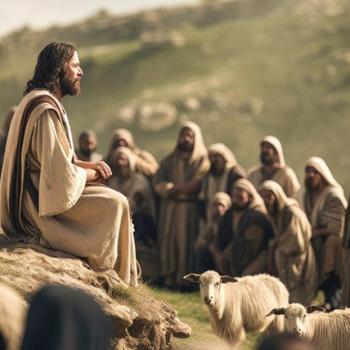Trying to figure out how to contextualize the gospel? Practically speaking, how do we assess whether a contextualization is faithful to Scripture and meaningful for a local culture?
Check out my article called “Contextualizing the One Gospel in Any Culture––A Model from the Biblical Text for a Global Context.”
In a single article, I jump head first into a few questions that are heavily debated among evangelicals.
On the question “What is the Gospel?” here are just a few of the people who have contributed to the debate––Scot McKnight, Greg Gilbert, Trevin Wax, N. T. Wright, Matt Chandler, Michael Goheen, J. D. Greear, Darrell Bock, John Dickson, D. A. Carson, Tim Keller. Others could be named, but this list in itself should raise eyebrows.
There is a strange irony that spurs the essay. Consider this question:
Although there is only one gospel, why do evangelicals find it difficult both to answer the question, “What is the gospel?” and thus to contextualize it?
This question is troubling. Now, interject cross-cultural context and the problem becomes down right alarming.
Fundamental to cross-cultural ministry (or any Christian ministry) is the problem of how we contextualize this one gospel in any cultural context. With respect to contextualization, evangelicals find agreement only at the broadest level––preserve Scriptural authority and avoid syncretizing Christianity and culture. With respect to the gospel, the central issue may not be about what is right or wrong, but rather what is primary and what is secondary.
It may be the case that we all are both right and wrong.
“Reconciling Friends”?
When Spurgeon was once asked about how he reconciles human responsibility and divine sovereignty, he replied, “I don’t try to reconcile friends.” Spurgeon’s words might well apply to these contemporary debates about contextualizing the gospel. Even so, it’s time to “define the relationship” between gospel and culture.
At one level, it may be a bit presumptuous to propose a model for contextualization that could work in any culture and yet also find a way weave together the multiple perspectives in the “gospel” debate. On the other hand, God gave us one book with many different authors who speak of one gospel using many expressions. There is hope.
We can’t simply surrender the point simply because it’s a hard problem. True humility demands we press on for the sake of the gospel among all nations.
I’d love to hear what you think. Have you read anything you’ve found particularly helpful on this topic? Any suggestions on moving these debates forward?
This article is part two in a four part series I’m writing for GlobalMissiology.org. Part one was called, “We Compromise the Gospel When We Settle for Truth: How ‘Right’ Interpretations Lead to ‘Wrong’ Contextualization.”
NOTE: I saw that the PDF version originally posted corrupted the Greek/Hebrew fonts within the article. I think this will be corrected soon.)
Related articles
- Reply to Questions about Compromising the Gospel by Settling for Truth (www.patheos.com/blogs/jacksonwu)
- The Gospel-Centered Everything (challies.com)












